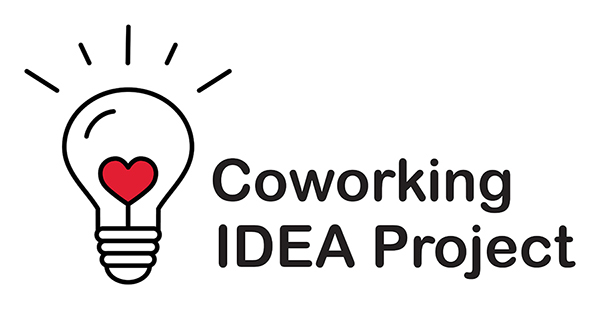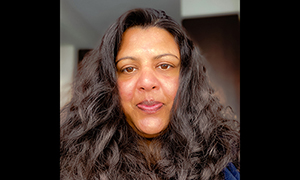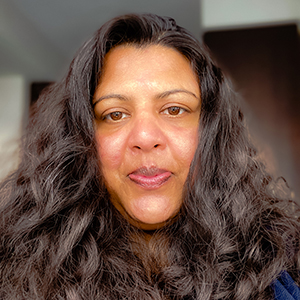Identity. Power. Privilege. Allyship.
September’s IDEA Challenge is facilitated by Surabhi Jain.
The IDEA Project is a global initiative aimed at developing Inclusivity, Diversity, Equity and Accessibility (IDEA) within coworking and collaborative spaces. Each month, we will host a challenge that assists you in broadening your understanding of IDEA, whilst giving clear actions for you to take to develop IDEA within your space.
Challenge #32 – Identity. Power. Privilege. Allyship.
My name is Surabhi Jain and I am the founder of Women In Power. Women In Power is a leadership fellowship where we use a story-telling approach for narrative change to move leaders from innerwork to inclusive leadership to allyship. Over a 9-week period, white and racialized (BIPOC) women come together to share their lived experiences with systemic inequities, such as race, gender, and patriarchy, at work and how they affect them similarly, yet quite differently.
For this month’s IDEA challenge, I want us all to think about the intersection of our identities with power and privilege. I will share a quick note about identity, power, and privilege and we will then delve into how these connect with each other through reflection questions and exercises for you to consider doing before our conversation at the end of the month.
Identity is defined as a set of physical, psychological, and inter-personal characteristics that are not wholly shared with another person. Identities are unique. Just like our fingerprints. What each one of us holds is special and different from the other person. Similarly, all of us hold power and privilege in our identities. Yet, it can be very difficult to find that power or privilege when we feel we are marginalized.
Power is defined as the ability or capacity to direct or influence the behaviour of others or the course of events. There are many types of power. Different researchers identify different types of power. A quick overview of the most common types of power is below.
- Social Power: It is the power you hold in social settings. It is based on your social status and identity. Some of this can be inherited, primarily it is earned.
- Historical Power: This is the power that comes from internalization as a child. In other words, depending on the family, society you grew up in, you will have power and it will only increase as you get older.
- Personal Power: This is power developed by self. It is based on an individual’s attributes and skills.
- Positional Power: It is power based on one’s position – formally held roles in professional and social settings.
- Relational Power: This is power based on your relationships with others.
Neither one of these powers is the most powerful, nor is it the least powerful. What is most important is how you use these different powers in different circumstances. For marginalized individuals it can be extremely difficult to feel powerful, yet there is power that all of us hold. It’s just a matter of recognizing where we hold it and how to utilize it.
Lastly, privilege is unearned access or advantages granted to specific groups of people because of their membership in a social group. Privilege can be based on a variety of social identities such as race, gender, religion, socioeconomic status, ability status, sexuality, age, education level and more.
Privilege is key to allyship. Where you can’t use power, you can use privilege to unlock doors, make things happen for those that don’t have the power or pivilege. Privilege can make change happen.
The Canadian Council for Refugees created a power wheel which demonstrates how much privilege you have depending on different factors (screenshot below). According to this wheel the closer you are to the middle, the more privilege you have.

Now that you have a basic understanding of identities, power and privilege. I encourage you to look at the power/privilege wheel above and see how your identity intersects with it. Do you have more privilege in some areas than others? How does that make you feel? Do you feel more powerful seeing all the privilege you have? Can you identify ways to use your power/privilege for allyship?
Take time to think about the intersection of power and privilege and what it means for you in your work and how you show up. Think about scenarios where you have a lot of power (e.g.: white man in a board room full of people of colour) and where you have no power (e.g.: black woman leader in a room full of white board members). How does it make you feel? What parts of your identity do you lean into to develop your personal power?
Lastly, talk to your co-workers or friends to hear their stories and lived experiences on the systemic inequities that they face at work. Then think about how it differs from your experience. How has the conversation changed your narrative? Do you both experience the same inequities? Did you learn something new? Write down or think about at least 1-2 ways in which you can be an ally to this person (s).
By gaining an understanding of the intersections of your identity, power and privilege, you can create spaces that are equity-focused, empowering, and foster belonging.
Here are some resources to delve deeper:
Articles
Diversity, inclusion, equity, belonging venn diagram
Podcasts
4 ways to redefine power at work to include women of colour

This IDEA Challenge has been sponsored by by Women in Power.
If you’d like to learn more about Women In Power, please visit their website.
If you have questions or want to connect to chat about any of this work, please email Surabhi.
Surabhi Jain is a leader in the social impact sector with nearly 20 years of experience in designing, implementing, and managing adult education and training programs. She has worked closely with Fortune 500 companies to help them change racially biased hiring practices. At the same time, she has engaged in capacity building for the non-profit sector to change systems.
Surabhi’s lived experiences have afforded her a unique perspective on transformative systems change. She brings experiences from the workplace, from her travels, and from her childhood that have shaped her understanding of community, leadership, and human development.
Surabhi has a Bachelor of Science in Economics from Purdue University, Indiana and a Master of Arts in Sustainable International Development from the Heller School of Social Policy and Management at Brandeis University, Massachusetts.
September 27th 2023
9:00 AM Pacific | 12:00 PM Eastern
16:00 UTC | 18:00 CET


